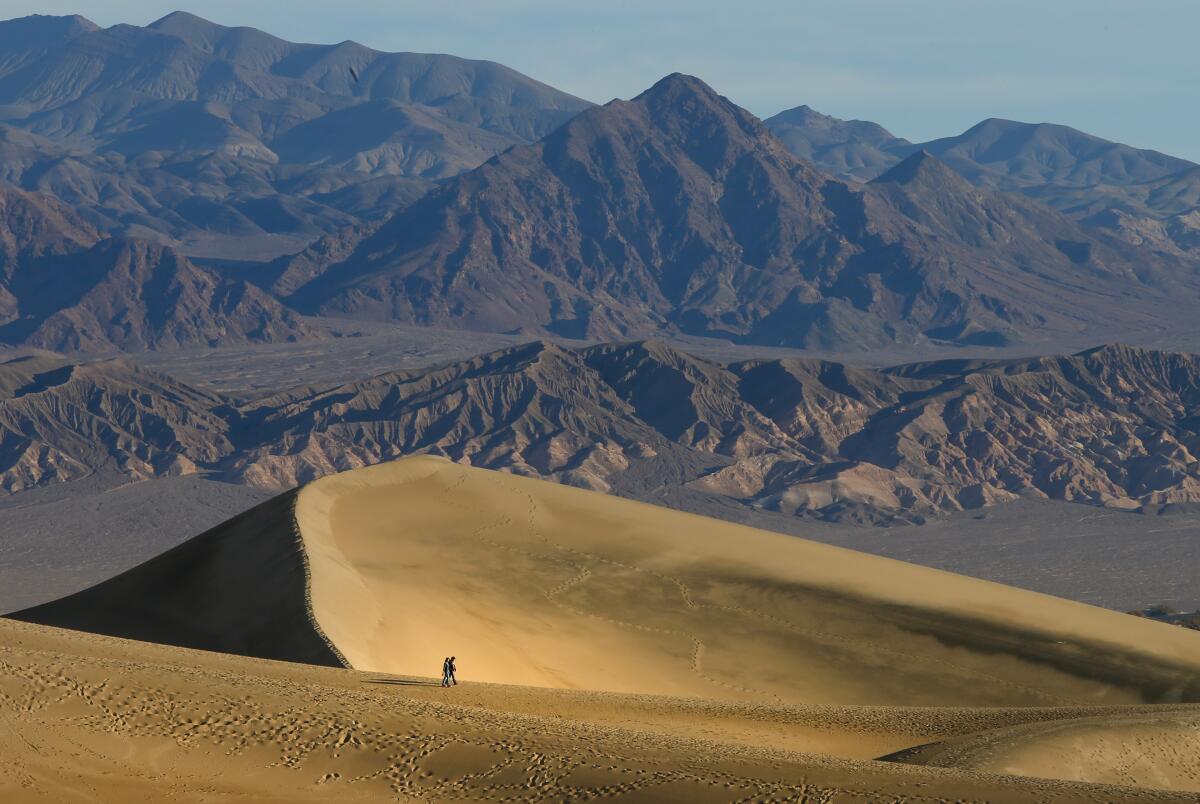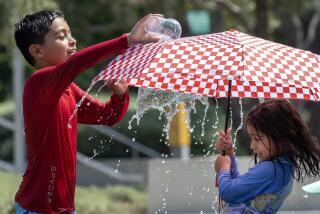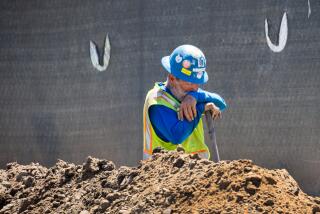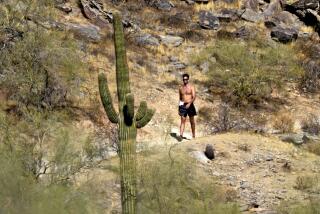Death Valley braces for 124-degree temperatures as heat wave broils California

An unforgiving heat wave will smother Southern California over the Labor Day weekend and Death Valley could see temperatures reach 124 degrees.
It’s a stark contrast to early August, when Death Valley National Park saw 1.46 inches of rain in a single day of monsoonal downpour. Floodwaters washed away several roadways and forced the park to close.
Death Valley in the Mojave Desert is one of the hottest places in the world, right next to the Sahara Desert in North Africa. On July 10, 1913, temperatures reached 134 degrees at Furnace Creek, according to the National Park Service. That same year, the park recorded its lowest temperature at 15 degrees.
The wild swings in weather are not unusual for Death Valley. Just before summer calls it quits this year, temperatures will soar to 119 on Wednesday, 122 on Thursday and up to 124 degrees on Monday and Tuesday, according to the National Weather Service. As a dome of high atmospheric pressure settles over the Southwest, temperatures will be eight to 12 degrees above normal and some daily and monthly temperature records could be broken or tied in Death Valley, according to forecasters.
While high temperatures are not unusual at this time of year, this week’s heat wave in the desert will linger for the next several days, with overnight lows dipping only into the low 90s.
“This is not a normal heat wave,” meteorologist Trevor Boucher with the National Weather Service in Las Vegas said.
Forecasts show a dry, hot week ahead.
“We don’t have a whole lot of moisture coming in over the next few days in Death Valley,” Boucher said. Without any cloud coverage, the area will be baked with intense, direct heat.
He cautions people to be aware of how long a heat wave lasts and how even less-extreme temperatures can be dangerous.
“If you have one day of hot weather then it’s noteworthy, but it doesn’t result in impacts,” Boucher said. “But when you have four or five days in a row of high temperatures, or even minimum temperatures, that takes a toll on people who are out late at night drinking or playing sports after the sun goes down.”
While some people may be able to find relief indoors with an air conditioner, others may not be able to afford the luxury or may simply be houseless, Boucher said.
“You have to consider all these other people, like those that live in mobile homes and those that are unable to escape the heat,” Boucher said.
The California Independent System Operator, which operates the state’s power grid, has already warned utility providers and consumers that flex alerts are likely this week. This means consumers will be urged to limit their energy use, like air conditioners and other heavy appliances, between 4 and 9 p.m., when the power grid is most stressed.
If not, grid operators may be forced to impose emergency measures, like blackouts.
More to Read
Sign up for Essential California
The most important California stories and recommendations in your inbox every morning.
You may occasionally receive promotional content from the Los Angeles Times.










